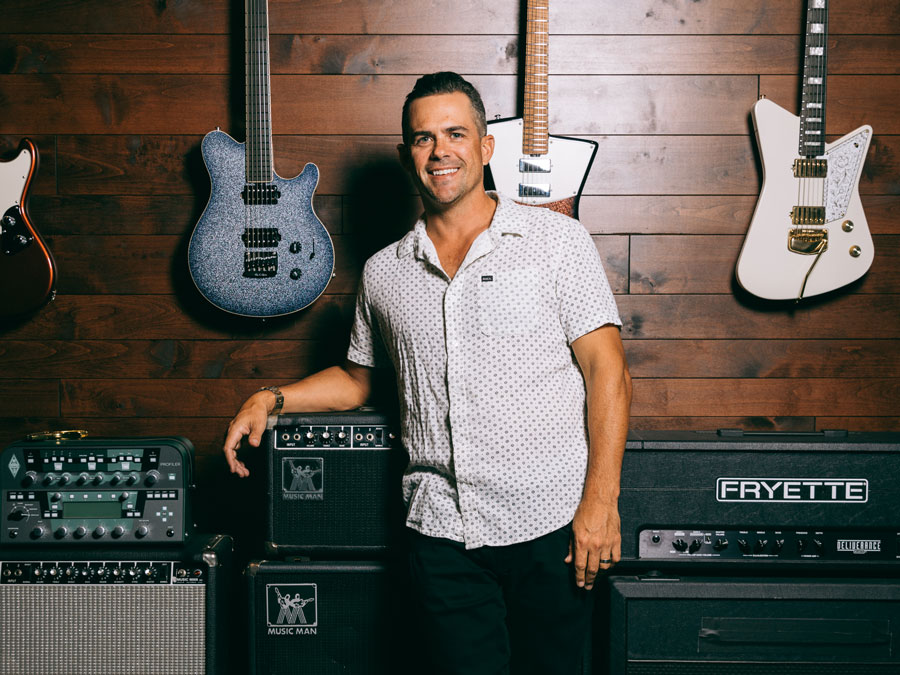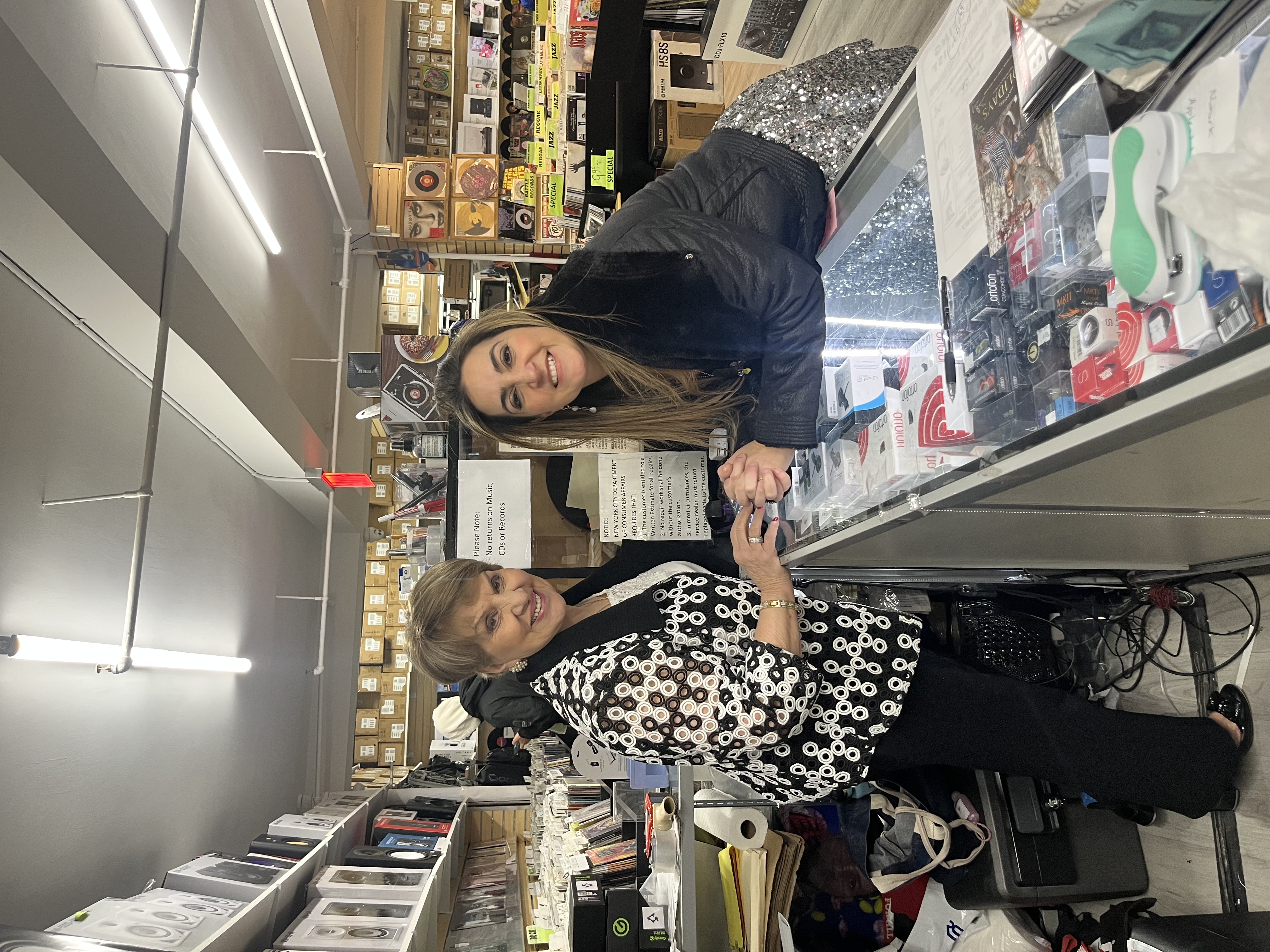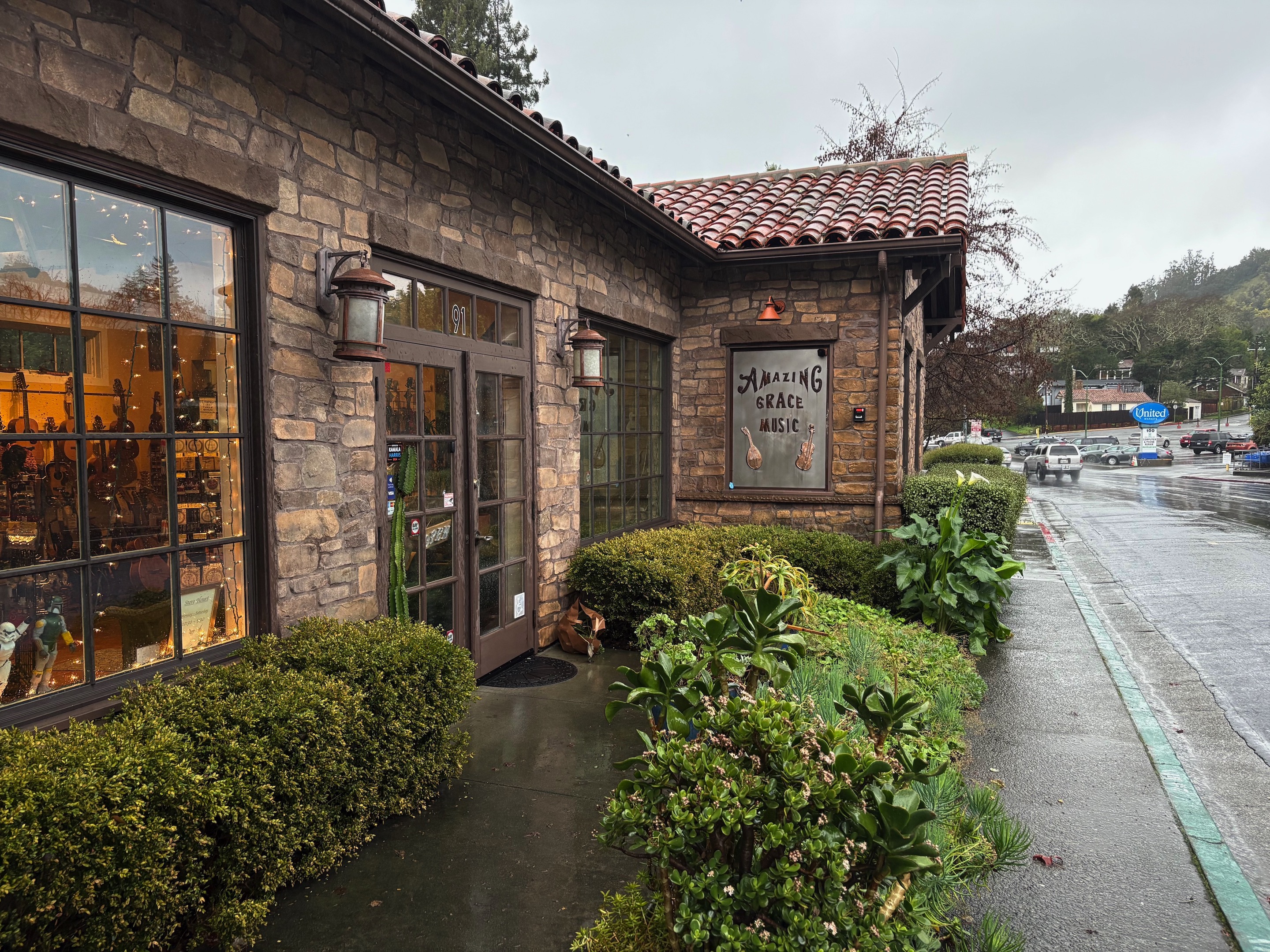
Ernie Ball CEO Brian Ball
The Details
HQ: San Luis Obispo, California
Founded: 1962
Employees: 450
Best selling product: Slinky Electric Guitar Strings
Fun Fact: Growing up as the grandson of company founder and namesake Ernie Ball, and son of current president Sterling Ball, Brian would sometimes eavesdrop on his dad’s calls without him knowing. “I always had a deep admiration for what he did for a living,” Brian says, “and how cool the family business that he and my grandpa had created and built together was.”
How do you start your day?
I have a one-year-old son, a three-year-old daughter and a seven-year-old daughter, and the day usually starts with my wife and I getting the kids going around 5:30 or 6 a.m. and spending time with them. Then I usually drink some coffee and read the Wall Street Journal. After that, I usually go for a run, which gets the endorphins going and helps me think about what I want to accomplish for the day. Running gives me a great start, mentally, physically and emotionally. Around 8 a.m., I start catching up on emails and having meetings.
Are you working from home these days?
I love being in the office and, before the pandemic, I was pretty much always there when there wasn’t intentional family or sleep time. Since COVID hit, I’ve mandated that all personnel who don’t need to be in the factory work remotely, and I’m trying to set an example by working remotely myself. My day has changed a lot since before the pandemic. I’m constantly on Zoom calls, like so many people are.
Where are your products made — and how has your manufacturing been affected?
In San Luis Obispo, [California], we manufacture instruments for our Music Man division. In Coachella, [California], we manufacture strings and accessories. Both locations have been tremendous for us on so many levels. San Luis Obispo has always had a great talent pool be- cause of Cal Poly, and in Coachella we have an incredible team [that] loves living and working where some of the biggest music festivals in the world take place. Most recently, since the pandemic hit, we’ve had to shift gears on the fly with our operations, which has been fairly challenging. When it comes to manufacturing, you design your factory footprint based on certain capacity goals — but then something like COVID happens and you have to cut that in half due to the need to distance people and keep everyone safe. We’ve had to add square footage, taper shifts, add shifts and [make] lots of other creative staffing adjustments to keep up with demand.
How have you adapted your factory to keep things safe?
Early on, we implemented some severe and drastic changes and adapted quickly to the situation. We’ve partitioned each operator’s area with plexiglass and plastic screens, instituted six-feet distance requirements and mandatory hand-washing breaks, made sure everyone wears masks and gloves similar to a hospital setting, set up procedures to disinfect all machines before, during and after shifts, and put supervisors in charge of ensuring that all [this] happens. We’re basically doing everything under the sun to prevent exposure to the virus.
How has it been going?
Business is definitely not as usual, but our team’s done a remarkable job of adjusting and staying effective and efficient, both in the factory and in remote settings. It’s all due to a dedicated staff and team who have done so well under adverse circumstances. [It’s] pretty amazing to watch everyone step up in times where there is no precedent.
How have sales been?
Bordering on explosive. With a lot of people staying home and picking up the guitar as a hobby — or wanting to reignite their former passion for playing — string, accessory and instrument sales have been better than constant. Being backordered is a great problem to have, and it’s a good barometer for musical instrument products in general. People still want to find that outlet for creative self-expression, and there’s no better mechanism for that than music and, in a lot of ways, the guitar. It’s rhythm, melody and phrasing. And any emotion that you want to express, you can do it through that instrument.
The Ernie Ball brand is huge. how do you approach honoring and innovating with it?
A lot of that is due to the amazing work my dad, Sterling Ball, has done over the last four-plus decades. I have so much reverence for my dad, and the fact that the brand is so big is a testament to what he was doing to build it — NAMM shows; mobile stage performances; crazy, painted cars — there’s been a very un-corporate, unconventional approach to running our business and it’s enabled us to stand out. There are so many examples, like the font we use for our Slinky Strings. It’s a custom typeface that we created. Packaging our strings with packs and colors — nobody else was doing that. In a lot of ways, not looking at what everyone else was doing, and being true to the roots of the brand, has kept us in people’s eyes as an authentic company with customers who remain loyal.
What’re your thoughts on product quality?
You can never successfully market a bad product. It’s a Walt Disney-ism, and it rings true. We are so laser-focused on quality because our products don’t just represent the brand, they also represent the family name. Our quality has been extremely consistent and even improved over time.
The company’s offerings have grown quite a bit since its founding.
The foundation is built on my grandfather’s recipe and design for Slinky Electric Guitar Strings, which remain our most popular product and are among the best-selling in the world. They’re a pillar of the company. But over the last handful of decades, we’ve widened our portfolio to include pedals, accessories, you name it. If the quality and craftsmanship are there and the design is right, the Ernie Ball brand is an amazing foundation for customers to want to try new products.
Your blog is engaging and very community oriented. what’s your approach?
We’ve tried to create an in-house marketing agency that handles everything from content development to photography to blog writing, social media strategy [and] digital marketing. We’ve continued to make sure that we reach our customers through a variety of mediums, including our blog, social media, e-mail list and more. There are so many ways to reach customers, and as long as we have something relevant to say or a product to talk about, we’re going to be very intentional about connecting in as many ways as we can.
Can you describe what it was like growing up in the ball family?
I knew that it was amazing and unique to have Steve Morse, Steve Lukather and Eddie Van Halen in our living room and some of the greatest musicians in the world connected to our family. I was in junior high when it was happening and there were some real pinch-yourself moments, like getting to hear jams that nobody else heard. I have tremendous gratitude that I was in that position. Looking back on it, I was a little intimidated to start working for the company, or even start playing guitar at an early age, because it felt almost unattain- able. I only picked up guitar when I was 19 and had been constantly focused on sports before that. A turning point was going on the Vans Warped Tour for the summer, working
with the company. I fell in love with the energy of live music and meeting artists and dove in from there.
How did you first learn your way around the company?
Before I went on the Warped Tour, in high school, I did internships for the company in string packaging, volume pedal shipping, artist relations and more. It was a great foundation. After getting my business degree from Cal Poly, I wasn’t starting fresh because I knew all the products, how most of them were made and how the company worked overall. I’d been around leaders of the business and knew how they interacted and dealt with customers. If I hadn’t had that foundation of experience, it would have been a real challenge getting to know the company and eventually leading it.
Have there been any guiding principles that you’ve followed during your tenure?
What I’ve found is that you learn by both successes and failures and if you’re not making mistakes, you’re not trying. I’ve learned so much by trying different things — with product development, sales promotion, marketing concepts and experimentation on the backend. I was given lots of autonomy, which was certainly amazing. Along the way, I’ve certainly had both wins and mistakes and have always been prideful and passionate about this
business. I work hard to steward the legacy of my grandpa and dad, who were both great mentors, and create some of my own contributions to that legacy along the way.
Are you making music yourself right now?
I love playing music with my friends. I’m in an alternative rock band called Eat the Wolf. We haven’t practiced for months, but we have been writing. The singer and I are the two main songwriters, and we’ve been trading Logic files, trying to lab out new songs. When we’re able, we’ll go into the studio and finish something up for release. I don’t know if we’ll be able to play live anytime soon.
If not music, what would you be doing?
My passions have always been split between sports and music. I could see myself working with a sports franchise, securing endorsement deals, helping to build a brand, or working as a manager, rep or agent. That would have been a really exciting career for me, had I not loved music so much.












